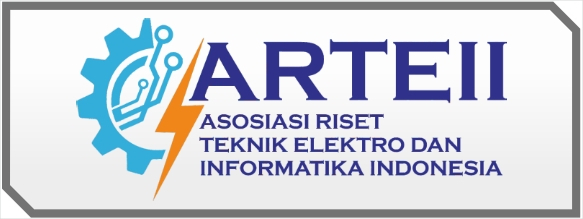Beyond Technology: A Narrative Review of Organizational Dynamics in IT Change Management
DOI:
https://doi.org/10.61978/data.v2i2.718Keywords:
IT-Enabled Change Management, Digital Transformation, Organizational Readiness, Stakeholder Engagement, Healthcare Technology, Resistance to Change, Technological ComplexityAbstract
This narrative review examines the organizational, technological, and human factors shaping IT-enabled change management (ITCM), with a particular focus on healthcare systems. The objective is to synthesize current evidence and highlight strategies that facilitate successful digital transformation across diverse contexts. A structured search was conducted in Scopus, Web of Science, PubMed, and Google Scholar, covering studies published between 2013 and 2023. Literature was selected based on relevance to ITCM, organizational readiness, stakeholder engagement, and implementation outcomes. A thematic analysis was applied to identify critical success factors and systemic challenges. Key findings indicate that adaptive organizational culture, strong leadership, and early stakeholder involvement are essential enablers of ITCM. Technological factors such as interoperability and system complexity remain major barriers, often compounded by user resistance. Human resource readiness—particularly digital literacy and training—emerges as a cornerstone of successful adoption. Comparative insights reveal that high-income countries benefit from robust infrastructure and governance, while low- and middle-income countries face persistent barriers related to limited resources and uneven capacity. The review concludes that ITCM requires integrated and context-sensitive strategies that combine technological innovation with organizational adaptability and human capital development. Practical implications include leadership training, cross-functional engagement, and targeted capacity building. Future research should employ longitudinal and system-dynamics approaches to assess sustainability and unintended consequences. This review contributes an integrative framework for understanding ITCM across organizational, technological, and socio-economic dimensions, offering insights for both policy and practice.
References
Castaño, J., Vallejo-Mesa, H., Adarve-Gutierrez, S., & Osorio-Vargas, J. (2023). Quality care in outpatient chemotherapy. Design and validation of the novel care quality ambulatory instrument. Aquichan, 23(2), 1–14. https://doi.org/10.5294/aqui.2023.23.2.4 DOI: https://doi.org/10.5294/aqui.2023.23.2.4
Handley, M., Harleman, E., Gonzalez-Mendez, E., Stotland, N., Althavale, P., Fisher, L., … & Rios, C. (2015). Applying the COM-B model to creation of an IT-enabled health coaching and resource linkage program for low-income Latina moms with recent gestational diabetes: The STAR MAMA program. Implementation Science, 11(1). https://doi.org/10.1186/s13012-016-0426-2 DOI: https://doi.org/10.1186/s13012-016-0426-2
Hoffman, P., London, Y., Weerakoon, T., & DeLucia, N. (2020). Rapidly scaling video visits during COVID-19: The ethos of virtual care at Yale Medicine. Healthcare, 8(4), 100482. https://doi.org/10.1016/j.hjdsi.2020.100482 DOI: https://doi.org/10.1016/j.hjdsi.2020.100482
Joskowski, A., Przybyłek, A., & Marcinkowski, B. (2023). Scaling Scrum with a customized Nexus framework: A report from a joint industry‐academia research project. Software Practice and Experience, 53(7), 1525–1542. https://doi.org/10.1002/spe.3201 DOI: https://doi.org/10.1002/spe.3201
Kaur, J., Kaur, M., Webster, J., & Kumar, R. (2018). Protocol for a cluster randomised controlled trial on information technology-enabled nutrition intervention among urban adults in Chandigarh (India): SMART eating trial. Global Health Action, 11(1), 1419738. https://doi.org/10.1080/16549716.2017.1419738 DOI: https://doi.org/10.1080/16549716.2017.1419738
Klaus, T., Blanton, J., & Wingreen, S. (2015). User resistance behaviors and management strategies in IT-enabled change. Journal of Organizational and End User Computing, 27(1), 57–76. https://doi.org/10.4018/joeuc.2015010103 DOI: https://doi.org/10.4018/joeuc.2015010103
Kurian, D., Sundaram, V., Naidich, A., Shah, S., Ramberger, D., Khan, S., … & Yiadom, M. (2023). Changes in low‐acuity patient volume in an emergency department after launching a walk‐in clinic. Journal of the American College of Emergency Physicians Open, 4(4), e13011. https://doi.org/10.1002/emp2.13011 DOI: https://doi.org/10.1002/emp2.13011
Marcinkowski, B., & Gawin, B. (2019). A study on the adaptive approach to technology-driven enhancement of multi-scenario business processes. Information Technology & People, 32(1), 118–146. https://doi.org/10.1108/ITP-03-2018-0142 DOI: https://doi.org/10.1108/ITP-03-2018-0142
Mikkelsen, M., & Aaltonen, K. (2022). IT-enabled management of project complexity – An action design research project. International Journal of Managing Projects in Business, 16(1), 141–164. https://doi.org/10.1108/IJMPB-09-2021-0229 DOI: https://doi.org/10.1108/IJMPB-09-2021-0229
Odusanya, S., Ochoa, J., Chileshe, N., & Ahn, S. (2021). Linking complexity factors and project management approaches to performance: An embedded single case study of IT-enabled change projects in Australia. International Journal of Managing Projects in Business, 14(7), 1504–1528. https://doi.org/10.1108/IJMPB-11-2020-0354 DOI: https://doi.org/10.1108/IJMPB-11-2020-0354
Sahel, A., Brouwere, V., Dujardin, B., Kegels, G., Belkaab, N., & Belghiti, A. (2015). Implementing a nationwide quality improvement approach in health services. Leadership in Health Services, 28(1), 24–34. https://doi.org/10.1108/LHS-04-2014-0042 DOI: https://doi.org/10.1108/LHS-04-2014-0042
Soltany, Z., Rostamzadeh, R., & Skrickij, V. (2018). A model to evaluate supply chain technology implementation influence on organizational performance. Transport, 33(3), 779–792. https://doi.org/10.3846/transport.2018.5468 DOI: https://doi.org/10.3846/transport.2018.5468






